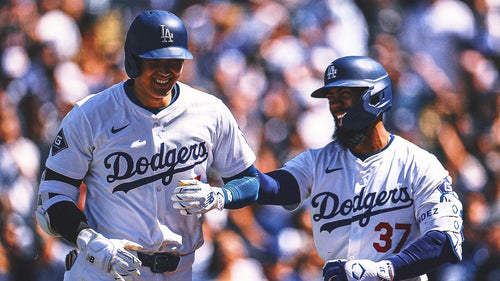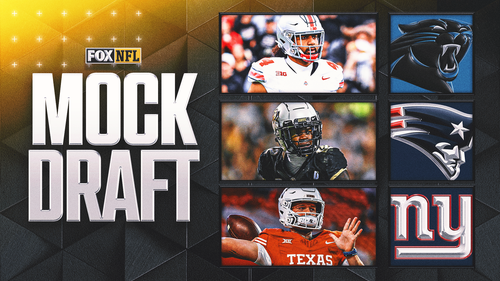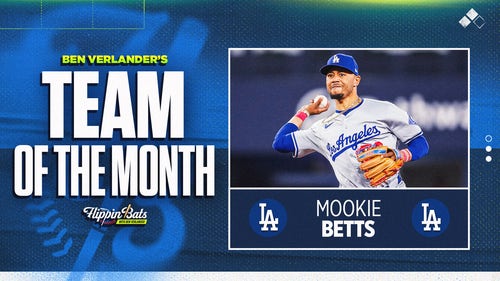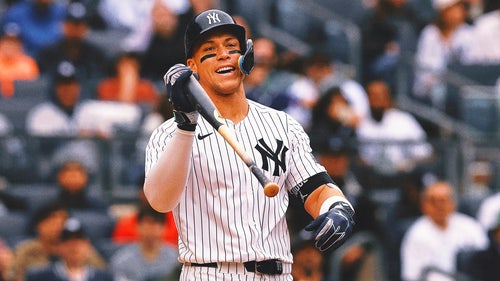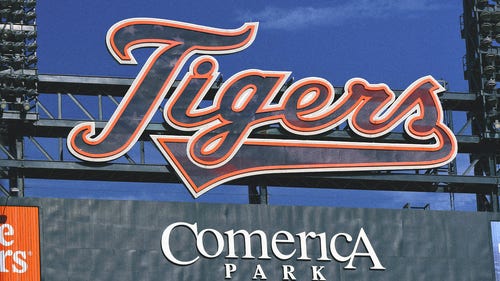
Tigers' bad decisions led to Granderson trade
Some may suggest that the Tigers agreed to trade Curtis Granderson
and Edwin Jackson on Tuesday because the Michigan economy is not
doing well.
That is false.
This deal happened for 92.1 million reasons — the
number of dollars owed to Miguel Cabrera, Magglio Ordonez, Carlos
Guillen, Brandon Inge, Nate Robertson, Dontrelle Willis and Jeremy
Bonderman in 2010.
It's sad, really. The Tigers were doomed by their own
generosity. They won a pennant in 2006, traded for Cabrera and
Willis in 2007, and made a habit of rewarding players based on past
accomplishments or the expectation of same.
Baseball teams do not win championships because of
benevolence. They must make cold, calculating decisions about when
to hold onto veteran players and when to let them go.
Time after time, the Tigers made the wrong choice. And now
they have determined that the best way to atone for those errors is
to trade away a pair of All-Stars <i>before</i> they
make big money.
On one level, it's hard to fault the Tigers too much. When
team president/general manager Dave Dombrowski handed out those
hefty contract extensions, one after the other, some people (myself
included) applauded the team's commitment to maintaining a core of
veterans. Many small-market teams are unable to do that.
But now it's obvious that Dombrowski made a number of
mistakes that have cost the organization dearly.
The loss of Granderson will sting people in Michigan
especially hard. He was one of the most popular figures in Detroit
— athlete or otherwise — a charismatic star who
slugged 30 home runs and ran a foundation to benefit
underprivileged kids.
I don't believe this was a good trade for the Tigers. I also
don't believe it was a terrible one. But they shouldn't have needed
to make it. When Granderson signed a five-year contract extension
two winters ago, no one could have predicted that he would be
shipped to the Yankees this soon.
One wonders how much the Tigers' late-season collapse
— which could have been averted by one more victory over
the first 162 games, or three more outs in No. 163 —
factored into this decision. I can't help but think back to
something Dave Dombrowski told me at the general managers' meetings
last month.
I asked why the team was listening to trade offers on a
larger-than-expected number of players, and he said, "I think we're
open-minded, based on the fact that we didn't win a championship."
Apparently.
Did owner Mike Ilitch order a fire sale? No, the Tigers have
said. Granderson and Jackson will earn about $10 million between
them next year. (Note: Willis will earn $10 million next year all
by himself.) That's not a huge percentage, when considering the
team maintained a payroll of more than $130 million this year.
The timing, though, is very odd. Yes, the team suffered an
attendance drop this year, but it only fell to fourth in the
American League at 2.6 million. The money due to Ordonez,
Robertson, Willis, Bonderman and Inge will come off the books after
2010.
So, why the rush? Why not wait one more year? In what way
would trading two All-Stars help a team that is (we are told)
trying to make the playoffs in 2010?
The four players the Tigers acquired, pending physicals
— center fielder Austin Jackson and left-hander Phil Coke
from the Yankees; right-hander Max Scherzer and left-hander Daniel
Schlereth from the Diamondbacks — will undoubtedly help
their future. But I can't help but wonder if that future is now
less likely to include Justin Verlander.
Verlander, 26, is only two years away from free agency, where
a nine-figure contract may await. He is from Virginia. He has lived
in Florida. Do you think Verlander, a competitor on the order of
Roy Halladay, will want to stay in Detroit if players of
Granderson's caliber are being traded away? The Tigers' performance
over the next two seasons will need to convince him.
From Detroit's perspective, Austin Jackson is the key to the
trade. Scherzer has as much of a chance to pitch well in 2010 as
does Edwin Jackson. That portion of the trade, I believe, favors
the Tigers because Scherzer is younger and cheaper.
But Austin Jackson, 22, has never played in the big leagues.
And you can rest assured that the Tigers traded for him with the
idea that he will contribute for them in 2010. He will be asked to
replace an immensely popular player; that is a difficult task for
any veteran, let alone someone who spent 2009 in Moosic, Pa.
With Granderson gone, the laser focus on Cabrera will
probably intensify. He was drunk during an early-morning
confrontation with his wife prior to the Tigers' 161st game of the
season — a loss in which Cabrera went 0-for-4 and stranded
six runners.
Cabrera would be very difficult to trade, because of his huge
contract and off-the-field indiscretions. So if the Tigers wanted
to trim a little salary, they had little choice but to trade
Granderson and keep Cabrera. I would say Cabrera's task of
rebuilding goodwill with the fan base just got tougher —
and more vital.
But sentiment only goes so far, right? The Tigers know that
now. That's how they got into this mess in the first place.
For years, they kept players they should have traded. On
Tuesday, they traded one they were always supposed to keep.






































































































































